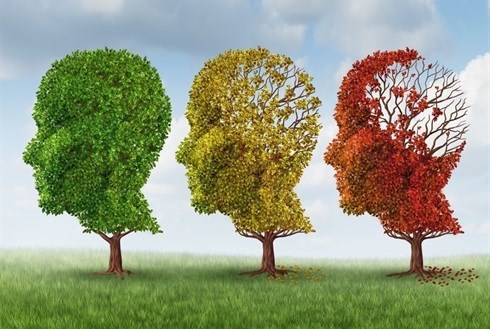Parkinson's, Alzheimer's, Motor Neuron Disease (MND), the mention of these instils fear in many of us, particularly if we know someone who is suffering with one of these diseases. Up until now, there has not been good news for those with these illnesses. The current range of neurotherapeutic approaches have been below expectation, and while in some instances they have helped to slow down the disease process, they do not address the cause.
These are some of the main neurodegenerative illnesses in the world, along with Huntington's and Spino-cerebellar ataxias (SCA), all of which are characterised by neuronal cell death with progressive loss of cortical structure and function.
This is poised to change through pioneering interdisciplinary research being conducted by two University of Witwatersrand Professors from the Faculty of Health Sciences who have designed a nanoscience-based therapeutic approach called Nano-Neurotherapeutics.
The two researchers are pharmaceutical scientist, Professor Viness Pillay, from the School of Therapeutic Sciences and neurologist, Professor Girish Modi, from the School of Clinical Medicine.
Their designs, methods and preclinical Nano-Neuro-Therapeutics tests will be discussed at the 12th Prestigious Research Lecture of the Faculty of Health Sciences, University of the Witwatersrand on 10 June 2015 from 17h30 at the School of Public Health Auditorium, Faculty of Health Sciences, York Road in Parktown.
Titled 'Nano-Neurotherapeutics: Unravelling Neurodegeneration', the lecture offers the best of 'global first' research for which the two Professors are renowned.
The primary cause of the 'failed expectancy' of current treatment regimens is their very poor ability to cross the highly restrictive blood-brain barrier (BBB) in order to reach affected sites in the brain. Delivery to the targeted sites has also not been specific enough and patients on current forms of neurotherapy often experience severe side effects. Many are burdened with having to take an enormous amount of pills, sometimes for life.
Prof Modi has extensive experience as a clinician who comprehensively understands the current challenges of treating neurodegenerative disorders in a clinical setting. This is coupled with Prof Pillay's pioneering work in nanomedicine. The combined research of these two titans has culminated in a scientific programme that promises to revolutionise treatment models in neurology worldwide.
"In determining any strategy for dealing with neurodegenerative illnesses one needs a full understanding of the mechanisms of neurodegeneration and the clinical effects these result in," says Modi
"The clinical aspects involve understanding the disease profile in terms of which specific parts of the brain are affected and how this impacts on the symptoms. In the SCA disorders, the cerebellum is the chief site of damage. In Parkinson's disease, it is the basal ganglia. In Alzheimer's disease, it is the temporal cortex and in ALS, it is the Betz cells.
"With Nano-Neurotherapeutics we need to achieve delivery of drugs to these specific sites and design nano-molecules to achieve this. This is where the expertise of Professor Pillay comes in."
"Nanomedicine and nanoscience encompasses the engineering of functional materials and devices on the nanometre scale -1-100nm - at the atomic, molecular or supramolecular scale," says Pillay
Their approach includes the design of bio-robotic nanoconstructs or nanodevices that are able to successfully cross the BBB and provide targeted and controlled release of neuroactive drugs within the brain.
"These devices can be injected, administered orally or may be strategically placed using stereotactic techniques in specific areas of the brain to deliver a neuroactive drug over a prolonged period of time."
"The key issues in ensuring more specific (as opposed to 'non-specific') drug therapy in treating these disorders is to deliver neuroactives directly to target sites within the brain, avoid degradation of neuroactive drugs by proteins and the systemic circulation, and, crucially, as mentioned, facilitate the delivery of neuroactive drugs across the restrictive BBB.
"If we look at Parkinson's disease for example, which is one of the most common and severely debilitating neurodegenerative disorders, it is characterised by a progressive loss of dopamine neurons in the brain and results in the inability to store and regulate the release of dopamine. With current drug therapy only a small percentage of drugs reach the brain due to hepatic degradation and the restrictive blood-brain barrier."
The ability to come up with a dramatically improved treatment option for this and the other neurodegenerative diseases lies in the hands of the two Professors who have one of the few BBB-drug-targeting technology programmes in the world today. There are unfortunately very few BBB scientists being trained in academia.
Pillay and Modi's developments in Nano-Neurotherapeutics have brought us ever closer to the possibility of implanting neuro-gadgets into our brains that have the potential to render the debilitating effects of neurodegenerative disorders a thing of the past.
































